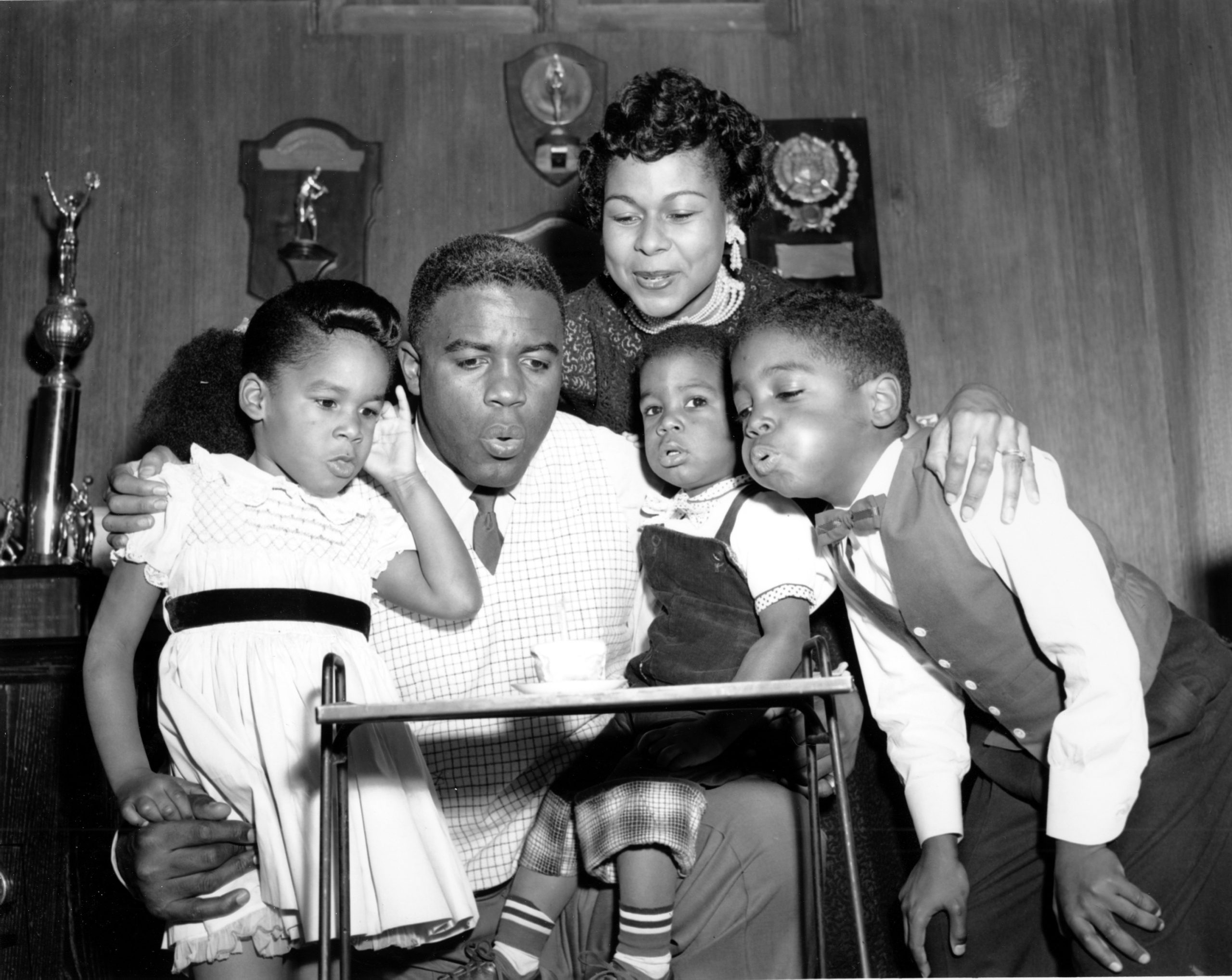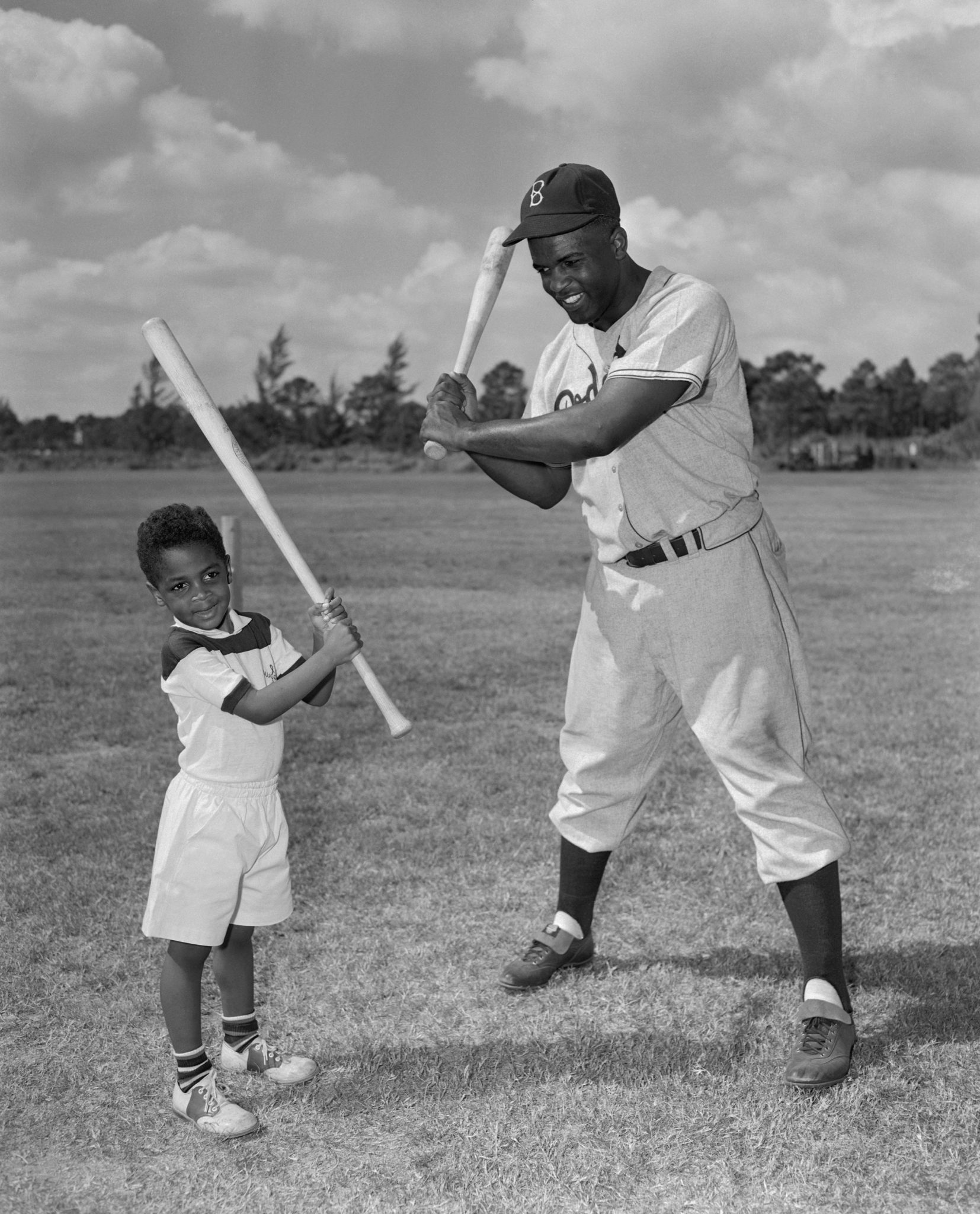Table of Contents
Introduction
Jackie Robinson Jr., the son of legendary baseball player Jackie Robinson, carved his own path in history while carrying the weight of his father's monumental legacy. While many know the name Jackie Robinson as the man who broke Major League Baseball's color barrier, fewer are familiar with the life and struggles of his son, Jackie Robinson Jr. His story is one of resilience, advocacy, and a commitment to social justice that echoed his father's groundbreaking achievements.
Born into a family synonymous with courage and change, Jackie Robinson Jr. faced unique challenges that shaped his life and career. Growing up in the shadow of his father's achievements, he navigated a world that often compared him to the iconic baseball legend. Despite these pressures, he forged his own identity, dedicating his life to military service, civil rights advocacy, and community leadership.
This article delves into the life of Jackie Robinson Jr., exploring his biography, personal struggles, military contributions, and lasting legacy. By understanding his journey, we gain insight into the broader impact of the Robinson family on American society and the ongoing fight for equality. Let’s uncover the story of a man who stood tall in his own right and left an indelible mark on history.
Read also:Movierulz 2024 The Ultimate Guide To Understanding Its Impact And Legality
Biography of Jackie Robinson Jr.
Jackie Robinson Jr. was born on November 18, 1946, in Stamford, Connecticut. As the eldest son of Jackie Robinson, the trailblazing baseball player, and Rachel Robinson, a distinguished nurse and educator, he grew up in a household deeply committed to social justice and equality. His early years were marked by the immense public attention surrounding his father's historic entry into Major League Baseball in 1947, an event that forever changed the landscape of American sports.
Despite the privileges that came with being the son of a national hero, Jackie Jr.'s childhood was not without challenges. The Robinson family faced racial discrimination even as they broke barriers, and Jackie Jr. often found himself at the center of public scrutiny. He attended integrated schools and was encouraged by his parents to pursue academic excellence and develop a strong sense of social responsibility.
Jackie Jr. showed promise in athletics, much like his father, but his path diverged when he chose to serve his country in the U.S. Army. His decision to enlist marked the beginning of a new chapter in his life, one that would test his resilience and commitment to justice.
Personal Data and Biodata
| Full Name | Jack Roosevelt Robinson Jr. |
|---|---|
| Date of Birth | November 18, 1946 |
| Place of Birth | Stamford, Connecticut, USA |
| Parents | Jackie Robinson (Father), Rachel Robinson (Mother) |
| Education | Stamford Public Schools |
| Military Service | U.S. Army, Vietnam War Veteran |
| Date of Death | June 17, 1971 |
Personal Life and Family
Jackie Robinson Jr. grew up in a family that valued education, integrity, and activism. His father, Jackie Robinson, was not only a baseball legend but also a vocal advocate for civil rights, while his mother, Rachel Robinson, was a pioneering nurse and educator. Together, they instilled in their children the importance of contributing to society and standing up for justice.
Jackie Jr. had two siblings: Sharon Robinson, a writer and educator, and David Robinson, who became a coffee farmer and social entrepreneur. Despite the close-knit nature of the Robinson family, Jackie Jr. faced personal struggles that affected his relationships and mental health. His experiences in the Vietnam War left him with physical and emotional scars, leading to challenges with substance abuse and PTSD.
Despite these difficulties, Jackie Jr. remained deeply connected to his family and their shared mission of advancing civil rights. His parents supported him through his struggles, and he, in turn, sought to honor their legacy by dedicating himself to advocacy and community service.
Read also:Unraveling The Asunta Case Why Was She Killed
Military Service and Advocacy
One of the defining moments in Jackie Robinson Jr.'s life was his decision to join the U.S. Army. Inspired by his father's commitment to breaking barriers, Jackie Jr. enlisted in the military during the Vietnam War era. He served with distinction, demonstrating the same courage and determination that characterized his father's career.
Key Contributions During Military Service
- Combat Experience: Jackie Jr. was deployed to Vietnam, where he faced the harsh realities of war. His service exposed him to the physical and psychological tolls of combat.
- Advocacy for Veterans: After returning home, Jackie Jr. became a vocal advocate for veterans' rights. He worked to raise awareness about the challenges faced by returning soldiers, including PTSD and substance abuse.
- Community Leadership: Jackie Jr. used his platform to support initiatives that helped veterans reintegrate into civilian life, emphasizing the importance of mental health care and rehabilitation.
His military service and subsequent advocacy work underscored his commitment to making a difference, even in the face of personal adversity.
Challenges Faced by Jackie Robinson Jr.
Jackie Robinson Jr.'s life was marked by significant challenges that tested his resilience. Growing up in the shadow of his father's legendary status was both a blessing and a burden. While he benefited from the family's prominence, he also faced immense pressure to live up to his father's achievements.
Key Challenges
- Racial Discrimination: Despite his father's groundbreaking accomplishments, Jackie Jr. encountered racism and prejudice throughout his life.
- Substance Abuse: Struggles with addiction were a major hurdle, exacerbated by the trauma of war and the weight of societal expectations.
- PTSD: His experiences in Vietnam left lasting emotional scars, which he battled throughout his life.
Despite these challenges, Jackie Jr. remained committed to his family's values and sought to make a positive impact on the world around him.
Legacy and Contributions
Jackie Robinson Jr.'s legacy is one of courage, advocacy, and service. Though his life was tragically cut short in a car accident on June 17, 1971, his contributions to veterans' rights and civil rights continue to inspire. He exemplified the Robinson family's commitment to justice and equality, leaving a lasting impact on those who knew him and the causes he championed.
His work as a veteran advocate highlighted the importance of addressing the mental health needs of returning soldiers. By speaking out about his own struggles, he helped reduce the stigma surrounding PTSD and addiction, paving the way for greater awareness and support.
Comparison with His Father's Achievements
While Jackie Robinson Sr. is celebrated for breaking baseball's color barrier, Jackie Jr.'s achievements were more personal and community-focused. Both father and son shared a commitment to social justice, but their paths to making a difference were distinct. Jackie Sr.'s impact was global, while Jackie Jr.'s contributions were deeply rooted in advocacy for marginalized groups, particularly veterans.
Impact on Civil Rights Movement
Jackie Robinson Jr.'s advocacy work aligned with the broader goals of the Civil Rights Movement. By focusing on veterans' rights and mental health, he addressed issues that disproportionately affected African American communities. His efforts complemented his father's legacy by continuing the fight for equality and justice in new arenas.
Key Statistics and Achievements
- Military Service: Served in the U.S. Army during the Vietnam War.
- Advocacy Work: Raised awareness about PTSD and veterans' mental health.
- Legacy: Remembered for his dedication to civil rights and community service.
Conclusion
Jackie Robinson Jr.'s life was a testament to resilience, courage, and a commitment to justice. While he may not have achieved the same level of fame as his father, his contributions to veterans' rights and civil rights were significant and enduring. His story reminds us that legacy is not just about fame but about the impact one has on the lives of others.
We invite you to share your thoughts on Jackie Robinson Jr.'s legacy in the comments below. If you found this article informative, please share it with others who may be interested in learning more about this remarkable individual. For further reading, explore our other articles on the Robinson family and their contributions to American history.

